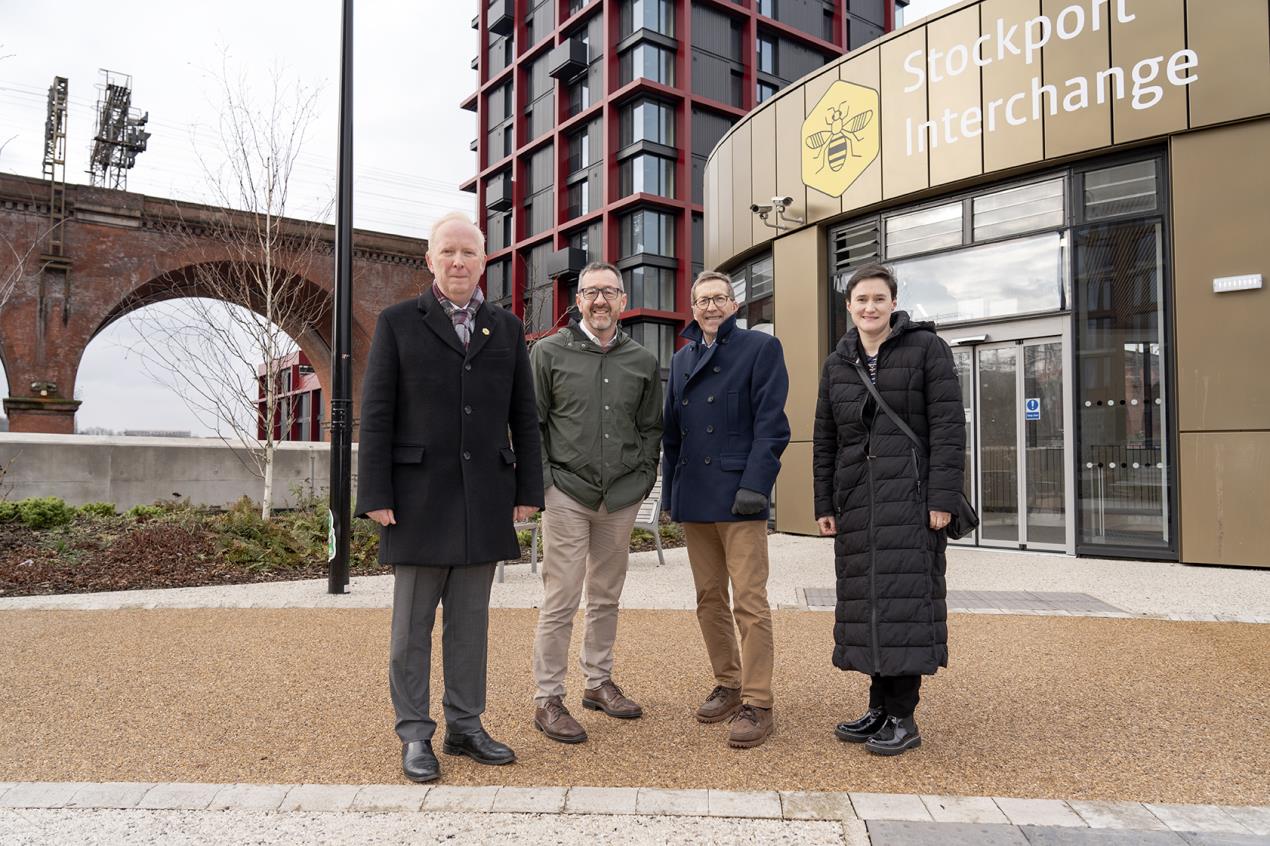| Greater Manchester will receive £20.8million from the Government to build more walking, wheeling and cycling routes,
The funding is yet to be allocated locally, but will focus on a range of walking and wheeling projects including the strategic cycle network, travel to school, access to cycles and integration with public transport. Greater Manchester welcomes this latest funding that follows the region’s most recent Active Travel annual report, showing an increase in walking short journeys and a decrease in driving. To mark the announcement, Local Transport Minister, Simon Lightwood visited Stockport to see some of the good work Greater Manchester is doing to build a fully-integrated public transport system and active travel network in Stockport.
The funding – part of a national £291million package from Active Travel England (ATE) – will help councils deliver high-quality cycle tracks and footpaths as well as safer crossings and junctions for all road users. ATE is also today publishing its guidance to help councils ensure that local residents and businesses are heard when designing and delivering transport changes in neighbourhoods. The national funding package will allow the construction of more than 300 miles of new walkways and cycle lanes across the country. This will help people make 30 million more journeys by bike or foot every year, including more than 20 million new walk-to-school journeys by children and their parents. Cycle lanes and walkways funded across England today will lead to 43,000 fewer sick days a year, due to the health benefits of increased active travel, easing pressure on the NHS and helping people live happier and healthier lives. The new infrastructure will also add £9million every year to the economy by supporting local businesses and making it easier to walk and cycle to work, as the Government continues to deliver its Plan for Change.
In total, the national £291 million funding package includes:
In addition to providing this funding, ATE is dedicated to ensuring that new schemes are built faster and to a high quality that works best for their communities. With ATE expert advice, local authorities have completed active travel projects at more than twice the rate of other small transport schemes. A recent report by Transport for Greater Manchester found infrastructure upgrades are encouraging more residents to get about under their own steam, with the number of people walking short journeys now at 57 per cent, up from 52 per cent five years ago. |

